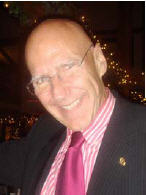Earlier this month, the New York Times reported that the Food and Drug Administration (FDA) had received claims that the drink 5-Hour Energy may have led to 13 deaths and 33 hospitalizations in the last four years. 5-Hour Energy is a highly caffeinated energy shot sold by Michigan-based Living Essentials (a unit of Innovation Ventures) in 2-ounce packages equivalent to drinking about two cups of coffee. According to Dr. Sean Patrick Nord, Uuiversity of Southern California Director of the Section of Toxicology, "If someone is to use multiple cans, now is when we start to see some of the side effects." This is the second time in a month that the FDA has confirmed that it is investigating claims that energy drinks are causing fatal reactions. In October, Monster Energy, another popular drink that contains even more caffeine was allegedly linked to five deaths, including that of Anais Fournier of Hagerstown, Md, a 14-year-old who went into cardiac arrest after drinking two, 24-ounce Monster Beverage Corporation drinks within a 24-hour period and whose family is suing Monster.
The FDA and the manufacturers have emphasized that these reports and claims do not necessarily prove that the
drinks caused the deaths. However, an autopsy found that Fouruier died of cardiac arrhythmia due to caffeine
toxicity that impeded her heart's ability to pump blood. She suffered from an inherited disorder that can weaken
blood vessels. A cardiac arrhythmia is a problem with the rate or rhythm of a heartbeat, such as beating too fast
or too slow. Most are harmless according to the National Heart, Lung and Blood Institute, however, some can
be Life-threateuing because the heart may not be able to pump enough blood to the body. Monster denies that its
beverages are responsible for Fournier's death and will vigorously fight the lawsuit.
Shelly Burgess, spokeswoman for the FDA stated that the "FDA continues to evaluate the emerging science on
a variety of ingredients, including caffeine and is working on draft guidelines to ensure energy drink safety." In
the interim, most fitness experts recommend that if someone is taking energy drinks because they are frequently
tired, they should be aware that the high amounts of caffeine in those drinks can over stimulate the heart and
nervous system and cause high blood pressure and dehydration; better ways to boost energy include: geuing
enough sleep; exercising regularly; eating a healthy diet and staying well hydrated by drinking 6-8 glasses of
water/day instead of highly caffeinated energy drinks.
Feel free to pass this issue of the Goldhaber Warnings Report on to any friend or colleague.
Dr. Gerald M. Goldhaber, the President of Goldhaber Research Associates, LLC, is a nationally recognized expert in the fields of Political Polling and Warning Label Research. His clients include Fortune 500 companies, as well as educational and governmental organizations. He has conducted hundreds of surveys, including political polls for candidates running for U.S Congress, Senate, and President. Dr. Goldhaber also served as a consultant to President Reagan's Private Sector Survey for Cost Control.
©Copyright - All Rights Reserved
DO NOT REPRODUCE WITHOUT WRITTEN PERMISSION BY AUTHOR.










